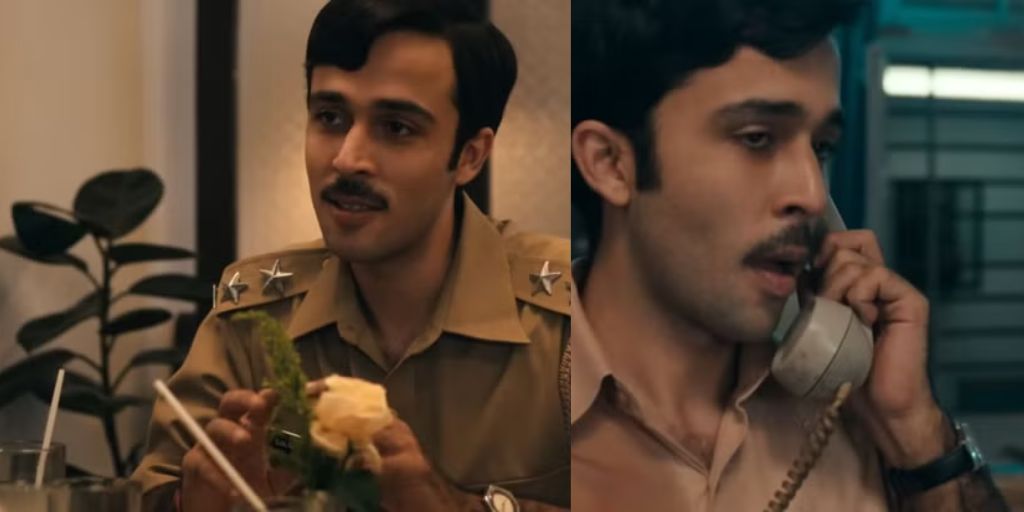From Cool Hand Luke to The Count of Monte Cristo, Prison Break, and Orange Is the New Black, prison dramas have always fascinated audiences. These stories allow viewers to experience the entire journey of a character navigating life behind bars.
Black Warrant, the latest addition to this genre, is based on the book Black Warrant: Confessions of a Tihar Jailer. The book is co-written by journalist Sunetra Choudhury and Sunil Kumar Gupta, a former jailer, who shares his experiences from a career spanning 34 years.
The Netflix series consists of seven episodes and is created by Vikramaditya Motwane (Sacred Games, Jubilee) and Satyanshu Singh. Black Warrant stars Zahan Kapoor as Sunil Gupta, the main character.
Other cast members include Rahul Bhat, Paramvir Singh Cheema, Anurag Thakur, and Sidhant Gupta, who plays the infamous Charles Sobhraj, also known as the “Bikini Killer.” Sobhraj was previously portrayed by Tahar Rahim in The Serpent.
The Story of Black Warrant
Set in India during the 1980s, Black Warrant presents a raw and intense look at life inside Delhi’s notorious Tihar Prison. The story follows an idealistic jailer, Sunil Gupta, who tries to confront deep-rooted corruption, extreme violence, and moral challenges within the prison walls.
The series provides a realistic portrayal of the conditions inside Asia’s largest prison, which houses nearly 2,000 inmates while being managed by just 700 staff members.
The chaotic and dangerous environment reflects a world where survival is uncertain. In one scene, the series illustrates how prison guards struggle with their vulnerability, highlighting their helplessness in maintaining order.
The Psychological Effects of Power in Black Warrant
Inside the prison, alliances constantly shift, making trust a rare commodity. Sunil, a vegetarian, initially struggles to connect with his colleagues Mangat (Cheema) and Dahiya (Thakur), who are physically stronger and more experienced.
Despite their differences, the three officers realize that working together is the only way to deal with gang conflicts, escape attempts, and even complications from workplace romances.
The series also tells the story of Sunil’s transformation. He enters the prison system as a young, hopeful officer with strong moral beliefs but soon learns that his job requires him to adapt quickly. His lessons often come from unexpected sources, including Charles Sobhraj, a manipulative and enigmatic inmate.
Sobhraj plays a crucial role in Sunil’s journey. Much like how serial killer Ed Kemper acted as an advisor to Holden Ford in Mindhunter, Sobhraj becomes a mentor to Sunil.
He even helps Sunil secure the job by convincing senior officials to hire him. Later, he teaches Sunil how to assert authority and earn respect from inmates. The show emphasizes how relationships inside the prison develop in ways that defy the norms of the outside world.
Black Warrant Breaks Traditional Prison Drama Patterns
Most prison stories follow a familiar structure: a new prisoner enters, struggles to adapt, and eventually finds a way to survive. One well-known example is The Shawshank Redemption, where Andy Dufresne, a banker wrongfully imprisoned, learns how to navigate life behind bars.
Black Warrant offers a fresh perspective by focusing on a prison officer rather than an inmate. Sunil is forced into this job out of necessity, not ambition. He becomes the primary earner for his family and has no other choice but to accept his fate.
His lack of experience makes his journey more intense, as he is immediately thrown into high-pressure situations. One of his earliest challenges involves settling a violent dispute among prisoners, setting the stage for his difficult career ahead.
No Easy Answers in Black Warrant
The show allows the story to unfold naturally, without imposing judgment on its characters. Director Vikramaditya Motwane presents events in a way that encourages the audience to form their own opinions.
One striking moment occurs in the second episode, titled “Gallows,” where an execution by hanging goes terribly wrong. Instead of being portrayed as a moral dilemma, the execution is shown as an administrative failure. This moment reinforces one of the show’s main themes—how power structures inside the prison create a world where ethical questions are often ignored.
Ultimately, Black Warrant forces viewers to acknowledge the harsh reality of life inside prison. It suggests that circumstances shape people, and no one can be strictly labeled as good or evil. The series does not offer happy endings, but it does provide a thought-provoking look at the resilience of human nature in one of the darkest environments.
Black Warrant is now available for streaming on Netflix in the U.S.




